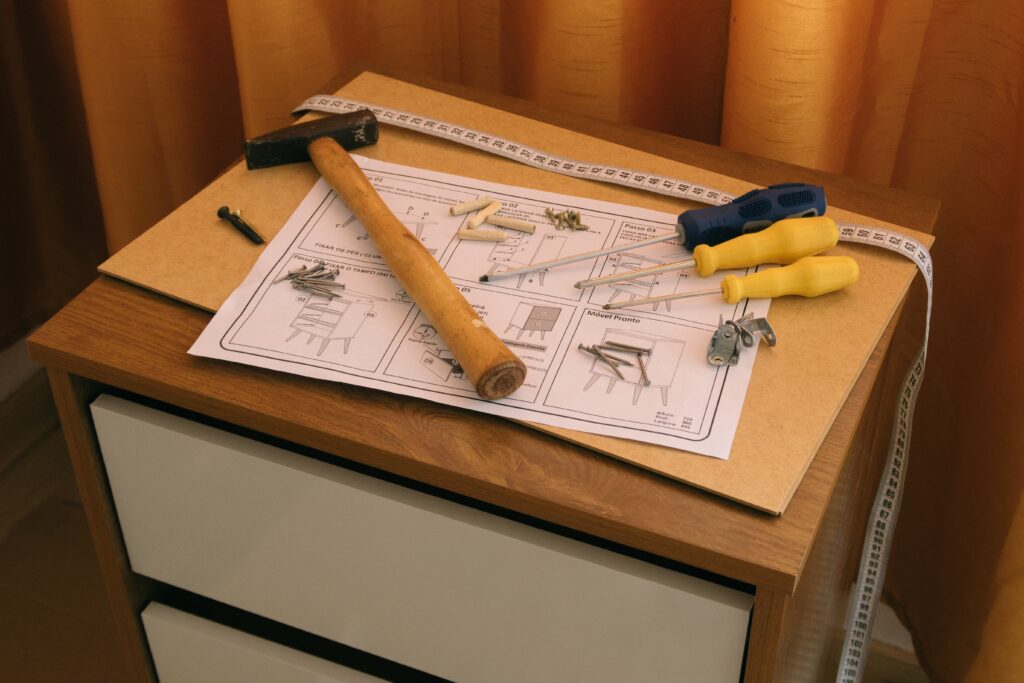This is my 5th installment in the series from the article, 8 Tips To Purchase Your Dream Home. We will be discussing Tip 5: Lease Purchase Benefits and Advantages. I am mainly focusing on the first-time would-be homeowner who would begin his homeownership as a tenant-buyer, a kind of homeowner in training. However, these tips will be helpful for anyone who wants to purchase a home using creative techniques.
Lease purchase agreements are becoming increasingly popular among those who aspire to own a home but lack the financial means to do so upfront. This type of arrangement allows a renter to lease a property for a set period of time, with the option to purchase the property at the end of the lease term. Lease purchase agreements offer many benefits and advantages to both the buyer and seller.
One of the most significant benefits of a lease-purchase agreement is the flexibility it provides for the buyer. This option allows the buyer to move into a home without having to secure a mortgage or make a large down payment.
Additionally, the buyer can take the time to save for a down payment or improve their credit score before purchasing the property. For sellers, lease purchase agreements can be an attractive option because they provide a reliable source of income and the potential for a future sale.
Understanding Lease Purchase

Lease Purchase is a type of real estate transaction that combines elements of a traditional lease agreement with an option to purchase the property at the end of the lease term. This type of agreement is often used in situations where the tenant does not have the financial means to purchase the property outright but still wants to eventually own the property.
In a Lease Purchase agreement, the tenant agrees to lease the property for a specific period of time, typically 1-3 years. During this time, the tenant pays rent to the landlord but also has the option to purchase the property at a predetermined price at the end of the lease term. The tenant typically pays an option fee at the beginning of the lease, which is credited towards the purchase price if the tenant decides to exercise the option.
One of the main benefits of a Lease Purchase agreement is that it allows the tenant to “try out” the property before committing to a purchase. During the lease period, the tenant has the opportunity to live in the property and assess whether it is a good fit for their needs and lifestyle. If the tenant decides not to purchase the property at the end of the lease term, they can simply walk away without any further obligation.
Another advantage of a Lease Purchase agreement is that it allows the tenant to build up equity in the property over time. The option fee and a portion of the rent payments are typically credited towards the purchase price, which can help the tenant build up a down payment and improve their chances of obtaining a mortgage when the time comes to purchase the property.
Overall, a Lease Purchase agreement can be a good option for tenants who want to eventually own a property but do not have the financial means to do so immediately. However, it is important for both parties to carefully review and understand the terms of the agreement before entering into it, as there can be significant legal and financial implications.
Financial Benefits of Lease Purchase

Lease purchase agreements offer a variety of financial benefits that make them a popular choice for both buyers and sellers. Here are some of the key advantages of lease purchase agreements:
Lower Initial Costs
One of the most significant benefits of a lease-purchase agreement is that it allows buyers to acquire a property with lower upfront costs. Rather than paying a large down payment, buyers typically pay an option fee that is significantly smaller. This option fee is typically between 2% and 5% of the purchase price, which means that buyers can acquire a property for a fraction of the cost of a traditional purchase.
Potential for Profit
Another advantage of lease-purchase agreements is that they offer the potential for profit. Because buyers have the option to purchase the property at a later date, they can benefit from any appreciation in the property’s value. Additionally, buyers can often negotiate a purchase price that is below market value, which means that they can potentially make a profit on the property when they eventually sell it.
Tax Advantages
Lease purchase agreements also offer tax advantages for both buyers and sellers. In some cases, buyers can deduct the option fee and any rent payments they make as a business expense, which can reduce their tax liability. Sellers can also benefit from tax advantages, as they can defer capital gains taxes until the property is sold.
In summary, lease purchase agreements offer a variety of financial benefits that make them an attractive option for both buyers and sellers. From lower initial costs to the potential for profit and tax advantages, lease purchase agreements provide a flexible and cost-effective way to acquire or sell a property.
Flexibility Advantages
Lease purchase agreements offer several flexibility advantages to both buyers and sellers. These advantages include the option to buy, time to improve credit score, and the opportunity to test the property.
Option to Buy
One of the most significant advantages of a lease-purchase agreement is the option to buy. This option provides the buyer with the flexibility to decide whether they want to purchase the property at the end of the lease term. This flexibility is especially beneficial for buyers who are not yet ready to commit to a long-term mortgage.
Additionally, the option to buy allows the buyer to lock in the purchase price of the property, which can be advantageous if the property appreciates in value during the lease term.
Time to Improve Credit Score

Another advantage of a lease-purchase agreement is the time it provides for the buyer to improve their credit score. Many buyers may not be able to qualify for a mortgage due to poor credit scores. However, a lease-purchase agreement allows the buyer to live in the property while they work on improving their credit score.
This can be especially beneficial for buyers who have experienced financial difficulties in the past and need time to rebuild their credit.
Opportunity to Test the Property
Finally, a lease-purchase agreement provides the buyer with the opportunity to test the property before committing to a long-term mortgage. During the lease term, the buyer can live in the property and determine whether it meets their needs and expectations. If the buyer decides that the property is not suitable for their needs, they can walk away at the end of the lease term without any obligation to purchase the property.
In summary, lease purchase agreements offer several flexibility advantages, including the option to buy, time to improve credit score, and the opportunity to test the property. These advantages can be beneficial for both buyers and sellers and provide a flexible and low-risk option for those who are not yet ready to commit to a long-term mortgage.
Risk Management
Lease purchase agreements offer several benefits, including a lower upfront cost and the option to purchase the property at the end of the lease term. However, like any investment, there are risks involved. Proper risk management can help mitigate these risks and ensure a successful lease-purchase agreement.
Protection Against Market Fluctuations
One of the biggest risks involved in a lease-purchase agreement is market fluctuations. If the value of the property decreases during the lease term, the lessee may end up paying more than the property is worth at the end of the lease term.
To protect against this risk, it is important to include a clause in the lease-purchase agreement that sets a fixed purchase price at the end of the lease term. This will ensure that the lessee is not paying more than the property is worth.
Reduced Maintenance Responsibilities

Another risk involved in a lease-purchase agreement is maintenance responsibilities. The lessee is typically responsible for the maintenance and upkeep of the property during the lease term. This can be a significant expense and can also impact the value of the property.
To reduce this risk, it is important to include a clause in the lease-purchase agreement that outlines the maintenance responsibilities of both the lessee and the lessor. This will ensure that the lessee is not responsible for any unexpected maintenance expenses and that the lessor is responsible for any major repairs or improvements to the property.
Overall, a lease-purchase agreement can be a great investment opportunity for those looking to own a property without a large upfront cost. Proper risk management, including protection against market fluctuations and reduced maintenance responsibilities, can help ensure a successful lease-purchase agreement.
Conclusion
In conclusion, lease purchase agreements offer many benefits and advantages for both the buyer and seller. By using this type of agreement, the buyer can secure a property without having to pay the full purchase price upfront. This can be particularly helpful for those who may not have the necessary funds to purchase a property outright.
Additionally, lease purchase agreements can benefit the seller by allowing them to earn income from the property while still maintaining ownership. This can be a great option for those who are having difficulty selling their property or who want to continue earning income from it.
Overall, lease purchase agreements can provide a win-win situation for both parties involved. However, it is important for both the buyer and seller to carefully review the terms of the agreement and ensure that they are comfortable with the terms before signing. By doing so, they can avoid any potential issues or complications down the line.
Frequently Asked Questions

What is a lease-purchase agreement?
A lease-purchase agreement is a contract between a buyer and a seller that allows the buyer to lease a property for a set period of time with the option to buy the property at the end of the lease term.
How does a lease-purchase agreement work?
The buyer pays a non-refundable option fee to the seller, which gives the buyer the right to purchase the property at a set price within a specified time frame. The buyer also pays rent during the lease term, which is typically higher than market rent and may include a portion of the purchase price. If the buyer decides to exercise their option to purchase, the option fee and rent paid during the lease term are typically applied toward the purchase price.
What are the benefits of a lease-purchase agreement?
A lease purchase agreement can benefit both buyers and sellers. For buyers, it allows them to lock in a purchase price and gives them time to save for a down payment or improve their credit score. For sellers, it provides a reliable source of rental income and a potential buyer for their property.
What are the risks of a lease-purchase agreement?
The buyer may lose their option fee during the lease term if they are unable to secure financing or choose not to exercise their option to purchase. The seller may have difficulty finding another buyer if the original buyer does not exercise their option to purchase.
What should I consider before entering into a lease-purchase agreement?
Buyers should consider their ability to secure financing and the condition of the property before entering into a lease-purchase agreement. Sellers should consider the buyer’s financial stability and the potential risks of entering into a lease-purchase agreement. It is recommended that both parties consult with a real estate attorney before signing a lease-purchase agreement.
I really hope you are enjoying these articles. Please be aware that these articles are not only meant to inform and educate but to inspire one to take action. If you are a renter looking to get into a home of your own, the lease-purchase strategy is one of the fastest and safest ways to homeownership!
You bypass the traditional methods of home-buying and all the “red tape” the financial institutions require that you wade through. Dream big and take action! Your home is waiting to be discovered. Just do it!
Let me know if I can help. Thanks so much.
Don
The lease Purchase Investor
Take action – getting started

I’m real estate investor, self-improvement coach, author, and publisher, Don Mayer. I would love to connect further with you to help you achieve your goals. If you are interested in learning more about lease purchasing a home, please take a look at my entry-level rent-to-own guide, “The Ultimate Home-Finder’s Workbook”, and consider coming aboard and learning the steps to moving into a home of your own!

